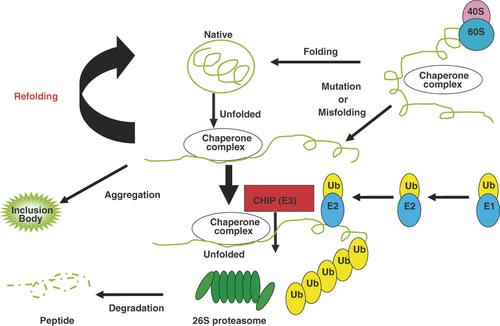Figures & data
Table I. Changes in chaperone expression in neurodegenerative diseases.
Table II. Compounds that induce chaperone expression.
